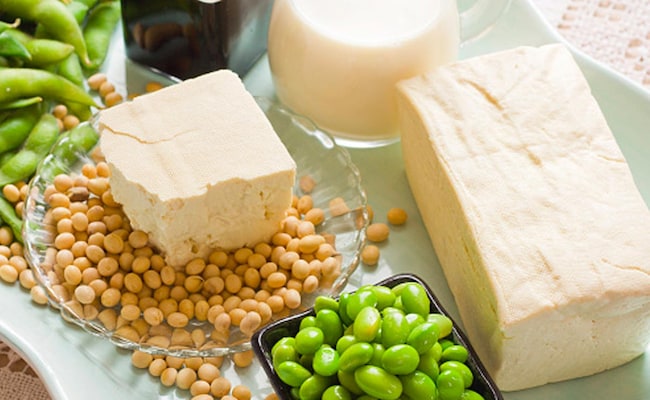National Nutrition Week 2024: These foods interfere with your absorption of nutrients

Soy products contain a compound, which can interfere with the body’s ability to absorb iodine
Some foods can interfere with the absorption of nutrients from our food by containing compounds that bind to important minerals and vitamins, making them less readily available for the body to use. To avoid these effects, it’s important to eat a variety of foods, balance foods that can inhibit absorption with those that enhance absorption (such as combining foods high in iron and vitamin C), and use self-preparation techniques. such as soaking, boiling or cooking to reduce sugar. the presence of anti-nutrient compounds. Read on as we share foods that can hinder your absorption of nutrients.
Foods that can interfere with nutrient absorption
1. Coffee and tea
Both coffee and tea contain tannins, compounds that can bind to iron and reduce its absorption in the digestive system. This is especially problematic for non-heme iron (from plant sources), which is less easily absorbed by the body compared to heme iron from animal sources. Drinking coffee or tea immediately after a meal, especially one that is high in iron, can reduce the body’s ability to absorb this important mineral, which may lead to iron deficiency over time. it’s still going.
2. Spinach
Although spinach is high in iron, calcium, and other nutrients, it is also high in oxalates. Oxalates are compounds that can bind to minerals such as calcium and iron in the gut, making them less soluble and therefore less absorbable by the body. Eating too much spinach without balancing it with other foods can hinder the absorption of these important nutrients.
3. Whole grains and legumes
Whole grains and legumes, such as beans and lentils, are high in phytates (phytic acid). Phytates can bind to minerals such as zinc, iron and calcium, making them unavailable. Although grains and legumes offer many health benefits, it is important to soak, sprout or ferment them before consumption to reduce phytates and improve nutrient absorption.
4. Raw eggs
Raw eggs contain a protein called avidin, which binds to biotin (a B vitamin) in the digestive tract, preventing its absorption. This can lead to biotin deficiency if consumed regularly in raw form. Cooking eggs changes avidin, making it inactive and allowing biotin to be absorbed better.
5. Soy products
Soybeans and soy products contain compounds called goitrogens, which can interfere with the body’s absorption of iodine. Iodine is essential for proper thyroid function. Consuming too much soy without consuming enough iodine can affect thyroid health and hormone production, leading to an underactive thyroid.
6. Alcohol
Drinking alcohol can interfere with the absorption of various nutrients, including folate, vitamin B12 and zinc. It damages the lining of the stomach and intestines, reducing the body’s ability to absorb nutrients effectively. Chronic alcohol use can also affect the liver, which plays an important role in absorbing and storing vitamins and minerals.
7. Dairy products
Calcium in dairy products can compete with the absorption of certain nutrients, such as iron. When used together, calcium and iron bind to each other, reducing the bioavailability of both. This is especially important for people who eat dairy products rich in iron, such as red meat or leafy greens.
Balancing consumption of these foods with other nutrient-dense options and using proper preparation methods can help minimize their effects on nutrient absorption.
Disclaimer: This content including advice provides general information only. It is in no way a substitute for qualified medical opinion. Always consult your specialist or doctor for more information. NDTV does not claim responsibility for this information.
#National #Nutrition #Week #foods #interfere #absorption #nutrients